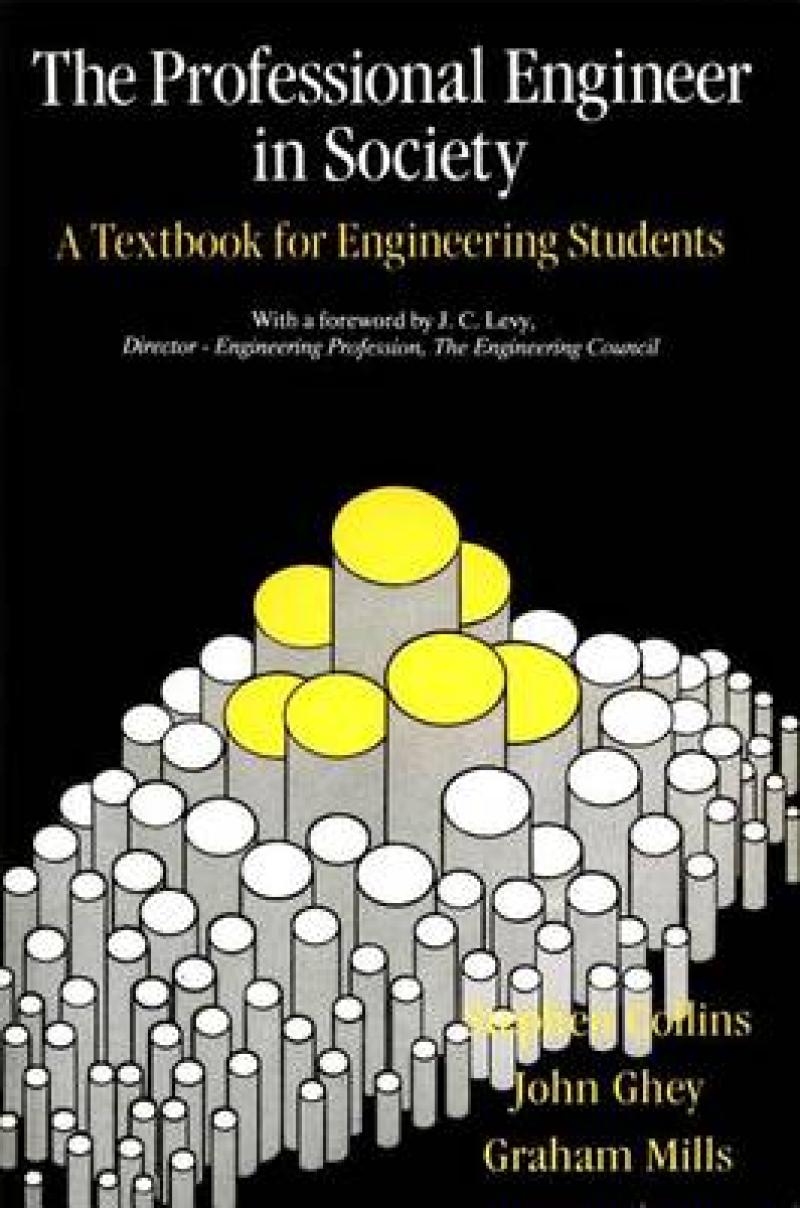The truly professional engineer, in addition to his or her specialised technical knowledge, should posses a high level of communication and management skills and a detailed understanding of engineering's environment and historical context.The authors describe the skills and background knowledge the effective engineer will need and go on to describe the historical development of the engineering profession, with particular reference to the UK but also in comparison with the French and German experiences. Similarly, the development of management and organisation theory is traced and brought up to date with an examination of successful management practices in the USA and Japan. Theory and practice are brought together in a chapter on the management of change, which examines the effects that change in technology and the external environment have on organisational structures and people. Issues of vital importance to engineering today are examined 'environment and safety' (including case study analyses of major disasters such as Chernobyl and Bhopal), and 'the regeneration of British industry' (including assessments of 'post industrial society' and 'anti-industrial culture'). The last two sections describe a conceptual approach to report writing which will help engineers to communicate their technical expertise more effectively on paper, and a similar analysis of the skills required for oral presentations.Assignments, practical exercises and study questions are set at the end of each chapter.
Les mer
The authors describe the skills and background knowledge the effective engineer will need and go on to describe the historical development of the engineering profession, with particular reference to the UK but also in comparison with the French and German experiences. Assignments, exercises and study questions are set at the end of each chapter.
Les mer
Foreword. Acknowledgements. Introduction. Part 1. Technology and Society. 1. The Professional Engineer in Society. Education and engineering. Is engineering a true profession? 2. The Work of the Engineering Council. Standards and routes to registration. Counting education and training. Campaigns and initiatives. 3. Technology and Society. The concept of a technological revolution. Technology transfers to the Third World. The impact of technology in society. 4. Energy Sources and the Environment. Fossil fuels. Acid rain. The Greenhouse Effect. Nuclear power. The disposal of nuclear waste. Nuclear reactor accidents: The Mile Island Nuclear Power Station accident. Chernobyl Nuclear Reactor accident. Nuclear fusion - energy for the next century? 5. Issues in Engineering Safety. The Health and Safety at Work Act, 1974. Explosion at Nypro (UK) Ltd, Fixborough, 1974. Release of dioxin from ICMESA Plant, Seveso, Italy, 1976. Release of methyl isocyanate from the Union Carbide Corporation Plant, Bhopal, India, 1984. Challenger Space Shuttle explosion, Cape Canaveral, USA, 1986. Capsize of the Herald of Free Enterprise, Zeebrugge, Belgium, 1987. The lessons learned. Safety in design. Human factors in safety. Part 2. The Organisation of Engineering Activities. 6. The Pioneers of Management Thought. Scientific management ('Taylorism'). The principles of administration (Fayol). Alfred Sloan and General Motors. Modern criticisms of the pioneers of management. 7. Modern Approaches to Organisational Design. The Japanese management style. 'In search of excellence'. Computer integrated manufacture. The Jaguar turnaround. Contracting out. The federal organisation. 8. Team Leadership. Leadership motivation and team building. The power of the group. Leadership style. Quality circles. Leadership and organisational structure. Part 3. 9. Face-to-Face Communication. Making a formal presentation. Chairing a meeting. Selection interviewing. 10. Written Communications. Style. Structure and logical order. Presentation. Memos and letters. Study Questions and Assignments. Bibliography. Appendices. Appendix 1. The Major British Engineering Institutions - A Chronology. Appendix 2. Key Dates in the Development of the British Engineering Profession. Appendix 3. Useful Address. Index.
Les mer
Produktdetaljer
ISBN
9781853025013
Publisert
1989-06-01
Utgiver
Vendor
Jessica Kingsley Publishers
Vekt
486 gr
Høyde
232 mm
Bredde
155 mm
Dybde
21 mm
Aldersnivå
05, 06, UU, UP, P
Språk
Product language
Engelsk
Format
Product format
Heftet
Antall sider
220
